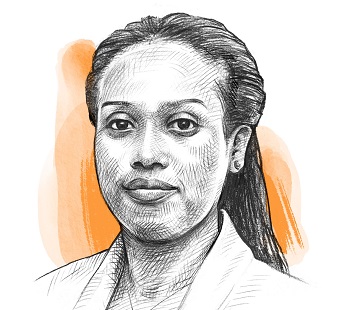Feasibility Study for the Conservation, Restoration and Development of the Lalibela Churches Site
Objective
-
€1.5mBUDGET
-
01/09/2019PROJECT START
-
36 monthsDURATION
Lalibela central to Franco-Ethiopian cultural cooperation
In June 2018, the Ethiopian Prime Minister, Abiy Ahmed, announced an ambitious national plan to reform Ethiopia’s political and economic system and society by strengthening governance. This plan also involves identifying new sources of domestic revenues for Ethiopia by diversifying its economy. The development of cultural and heritage sites is a major focus of this reform.
A new dynamic for cultural cooperation has been set in motion between France and Ethiopia following the meetings between the French President and Ethiopian Prime Minister in 2018 and 2019. Agence Française de Développement (AFD), in partnership with the French Ministry for Europe and Foreign Affairs and with support from the French Ministry of Culture, subsequently decided to commit funds to assist Ethiopia with the reform of its cultural policy for the conservation and development of its cultural heritage.
In this context, the public agency Expertise France is conducting a feasibility study to examine ways of restoring, conserving and developing the rock-hewn churches of Lalibela, an exceptional site of Ethiopia’s built heritage that dates back to the 13th century and a UNESCO World Heritage Site.
A scientific approach to the conservation and restoration of Lalibela
The objective of the feasibility study conducted by Expertise France is to produce the preliminary technical diagnostics required for the preparation of the comprehensive project to restore, conserve and develop the site. It is based on two main areas:
- A diagnostic and analysis of the pathology of the rocks in order to propose protection and conservation solutions;
- A monitoring and analysis of the stability of the existing shelters and a study of the conditions (site plan, height, type of structure) for possible alternative protection structures and their extrapolation on the churches that are not covered.
The report submitted following the feasibility study will provide a summary of the findings and recommendations for the two components described above. It will provide an initial basis for the specifications of the future project for the architectural design, restoration works and development of the site.
A binational and multidisciplinary team
The feasibility study is implemented by Expertise France, in close partnership with the French Ministry of Culture and Ethiopian institutional cultural stakeholders due to the exceptional nature of this project.
A project team has been set up and includes:
- A Chief Architect of Historical Monuments (CAHM), who has been appointed as the technical expert focal point and scientific coordinator of all the technical production and the delivery of the final summary report;
- A Franco-Ethiopian local coordinator and project manager, based in Addis Ababa assigned to the Ethiopian administration (Authority for Research and Conservation of Cultural Heritage – ARCCH) as the project focal point responsible for the administrative, operational and logistic coordination, the realisation of missions in the field and all the activities conducted under the feasibility study;
- A local Franco-Ethiopian facilitator, based in Addis Ababa responsible for preparing and supporting all the expert missions in the field and organising the dialogue and coordination with the religious authorities and local communities in Lalibela;
- A Franco-Ethiopian team of ongoing technical experts composed of experts in rock pathology, experts from the Historical Monuments Research Laboratory (LRMH), the technical and engineering design office and experts in instrumentation and in the installation of sensors and crackmeters.


